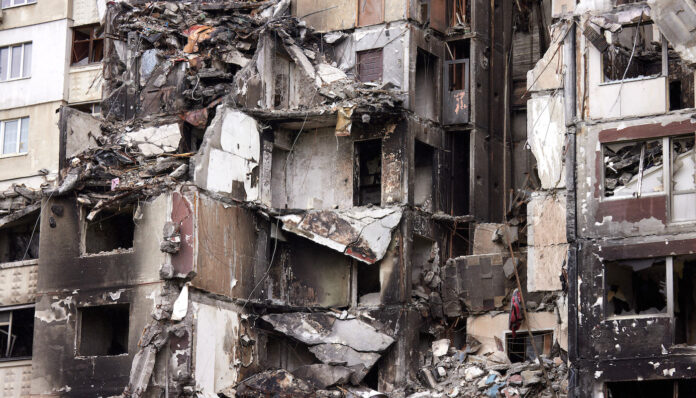
Both the economic and ground warfare
As soon as the war in Ukraine broke out in February 2022, many large companies sold their assets on Russian territory, and also packed up and crossed the new economic Iron curtain westward
It was the McDonald’s caravan that quickly sold 800 outlets to local operators, leaving about 1 billion dollars on the field. BP also withdrew immediately. The oil giant refused to acquire 19.75% of the Russian Rosneft, paying the Kremlin dearly for its choice 24.4 billion dollars, a real beating.
About 200 companies, however, went on keeping their assets in enemy territory. This appeared to be a bad idea, because in the meantime Putin has signed decrees that make it almost impossible to leave the Russian market.
First, the threat of nationalization. When by any chance someone insists on selling, the amount could not exceed 50% of the commercial value of the assets. Thus Nestlé, Danone, Unilever and Heineken – to mention only the most relevant ones – got stuck in an economic war that they probably didn’t foresee so harsh.
Putin and the state budget
Western sanctions are beating like the August sun and Tsar Vladimir has approved an overall budget for arms spending for 2023 that is double the previous one: 100 billion dollars, or a third of all Russian public spending (Reuters source). Which is to say: this war must be won or Samson will die with all the Philistines.
Today it takes more than 100 rubles to buy a dollar, which is twice as much as when Western countries were surprised by the crazy increase in oil and gas. Diplomacy has done its job and the price of energy products is no longer decided in the Kremlin but by negotiating with other suppliers.
The planetary decline
There is clearly not much room for optimism. In Poland, the mobilization of thousands of men and attack helicopters towards the border with Belarus should be frightening. And the climate of resignation of public opinion, the silence of the UN, the stammering of the European Union, the near-neutrality of China and India, the confused military maneuvers in southern Africa seem to dramatically foreshadow a progressive deterioration of the planetary situation.
La guerra economica segue la guerra sul campo
Subito dopo lo scoppio della guerra in Ucraina, nel febbraio 2022, molte grandi aziende occidentali hanno venduto in tutta fretta i loro asset in territorio russo, hanno fatto le valige e hanno attraversato verso Ovest la nuova cortina di ferro economica.
Ha guidato la carovana McDonald’s che ha ceduto alla svelta 800 punti vendita a operatori locali, lasciando sul campo circa 1 miliardo di dollari. Anche la BP si è defilata subito. Il colosso petrolifero si è rifiutato di acquisire il 19,75% della russa Rosneft, pagando cara al Cremlino la sua scelta: 24,4 miliardi di dollari, una vera bastonata.
Circa 200 aziende, invece, hanno continuato a mantenere i loro asset in territorio nemico. Pessima idea, perché nel frattempo Putin ha firmato decreti che rendono quasi impossibile abbandonare il mercato russo. In primo luogo la minaccia della nazionalizzazione. E se per caso qualcuno insistesse a volere vendere, l’importo non potrebbe superare il 50% del valore commerciale degli asset. Così Nestlé, Danone, Unilever e Heineken – per citare solo le più rilevanti – sono rimaste incastrate in una guerra economica che probabilmente non prevedevano così dura.
Putin e il bilancio statale
Le sanzioni occidentali picchiano come il sole d’agosto e lo zar Vladimir per il 2023 ha fatto approvare un bilancio complessivo di spesa in armi doppio rispetto al precedente: 100 miliardi di dollari, cioè un terzo dell’intera spesa pubblica russa (fonte Reuters) Che è come dire: questa guerra va vinta o Sansone morirà con tutti i filistei.
Oggi ci vogliono più di 100 rubli per comprare un dollaro, cioè il doppio di quando i Paesi occidentali si erano fatti sorprendere dall’aumento pazzesco del petrolio e del gas. La diplomazia ha fatto il suo lavoro e il prezzo dei prodotti energetici non si decide più al Cremlino ma trattando con altri fornitori.
Il declino planetario
Evidentemente non c’è molto spazio per l’ottimismo. In Polonia la mobilitazione di migliaia di uomini e di elicotteri d’attacco verso il confine con la Bielorussia dovrebbe mettere paura. E il clima di rassegnazione dell’opinione pubblica, il silenzio dell’Onu, il balbettio dell’Unione Europea, la quasi neutralità di Cina e India, le confuse manovre militari nell’Africa australe sembrano prefigurare drammaticamente un progressivo degradamento della situazione planetaria.
Dello stesso autore: Le guerre dei chip e il neocolonialismo del XXI secolo







